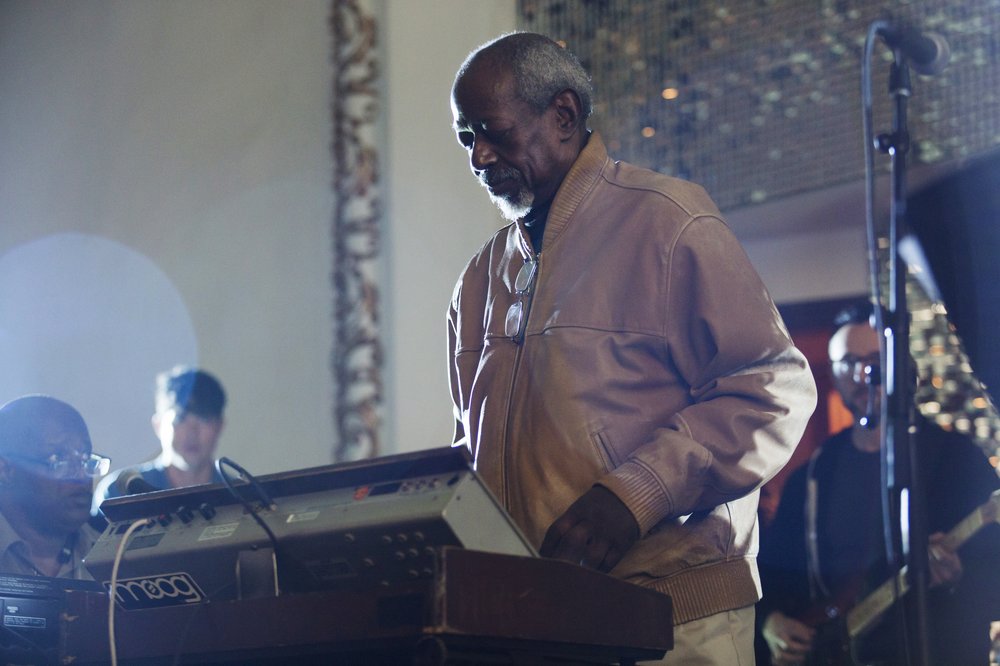Patrick Adams, legendary New York disco producer, has died at age 72
June 23, 2022, 1:03 p.m.
Also active as a writer, arranger and engineer, Adams steered chart-topping disco and hip hop hits, while also making more eccentric, personal records that had a lasting impact on later producers.

Patrick Adams may not have been a household name, but the work he did on a mountain of disco, soul, R&B and hip-hop records throughout the 1970s and ‘80s left an indelible mark on global dance music in general, and on the New York sound in particular.
The 72-year-old writer, producer, engineer and arranger died in his sleep on Wednesday morning, his daughter Joi Sanchez confirmed on Facebook, leaving behind a legacy unmatched in the city’s club culture, and sparking social media tributes from generations of musicians, DJs and club-goers.
The list of producers whose music made the leap from the disco heyday of Studio 54 to the golden era of New York rap is very short. But Adams made records that are considered classics in both milieus, and remain DJ set favorites.
Born in Harlem on March 17, 1950, Adams grew up and lived there throughout his life, and first learned about working with music by joining the glee club while attending Cardinal Hayes High School in the Bronx. He aspired to be a record producer from a young age, he told journalist Jeff Mao in a 2013 interview for Red Bull Music Academy, before he even understood what the music studio-bound gig meant. Adams often said that his initial music education came from hanging out at the backdoor of the Apollo Theater as a teenager in the mid- and late-1960s. He befriended the legendary venue’s stage manager, Pete Long, and its house orchestra conductor, Reuben Phillips, who allowed him to watch dress rehearsals of incoming bands, and sometimes hand out sheet music to the musicians — “almost like an apprentice,” he told Mao.
Adams soon became adept not only on a variety of instruments, but at writing songs, as well as arrangements for horns and strings. And what he did not know, he faked well. His first hit came in 1972, when “Don’t Turn Around,” a song he wrote and produced by the Harlem vocal trio Black Ivory, cracked the Billboard R&B Top 40.
For the rest of the decade Adams alternated between popular productions for major labels — whether crossover disco albums for the likes of Ben E. King and jazz flutist Herbie Mann, or chart smashes like Musique’s “In the Bush” and Inner Life’s “Caught Up (In a One-Night Love Affair)” — and eccentric, soulful dance records that struck the fancy of the city’s underground disco DJs, especially Paradise Garage’s Larry Levan and The Loft’s David Mancuso.
Those latter records — often released on independent labels that Adams was a partner in, like P&P and Red Greg Records — appeared under names like Cloud One, Bumble Bee Unlimited and Phreek, with the producer guiding studio musicians. They cemented his reputation with their warm, pulsating sound and sly sense of humor. But Adams could also make grand new statements out of staples: his work on Inner Life’s 1981 version of Ashford & Simpson’s “Ain’t No Mountain High Enough” turned the already huge song into a New York club anthem.
When disco’s commercial bubble burst in the early 1980s, Adams retreated. But by the middle of the decade he returned behind the board at Power Play, a Long Island City recording studio that was gaining a reputation for making innovative records in a new style of electronic music called hip-hop.
Here Adams struck gold once more, helping to craft breakout albums for rappers Salt-N-Pepa (the 1986 album "Hot Cool & Vicious") and Eric B. & Rakim (1987’s classic "Paid in Full"), and later Heavy D & The Boyz. Working with the pioneering hip-hop producers Marley Marl and Herby Luv Bug, Adams applied his studio expertise to the then-sample-heavy sound of New York hip hop. The records he worked on sounded new and huge, setting a new benchmark.
Adams’ influence carried on unabated into the 1990s, as dance music DJs and producers around the world discovered and integrated his signature warmth into their own styles, while pop artists turned his old songs into new smash singles. In 1991, British singer Cathy Dennis reworked the Adams song “Touch Me (All Night Long),” originally recorded by Westchester’s Fonda Rae, into an acid-house pop sensation that hit #2 on the Billboard Hot 100.
Some of Adams’ eccentric disco records had an even longer cultural shelf-life, showing up as samples on tracks by deeply influential DJs/producers like Chicago’s Paul Johnson, Jersey’s Kerri Chandler and Brooklyn’s own DJ Spinna, and by hip-hop free spirits like Madlib. Those originals and remakes are getting play even now, maybe more than ever.
The durability of Adams’ output attests to a timeless feeling he tried to instill in all his productions. “In your life, there are moments when you hear whatever type of music you love, a moment when you’ve heard a song that has [made you go ‘Oooh!]. This is what you need to aspire to,” Adams said in that 2013 Red Bull Academy interview. “Try to do something that not only makes you feel good but can move somebody else, make somebody else say, ‘Ooh!’" — something Adams succeeded in doing, on dance floors in NYC and around the world, for five decades.